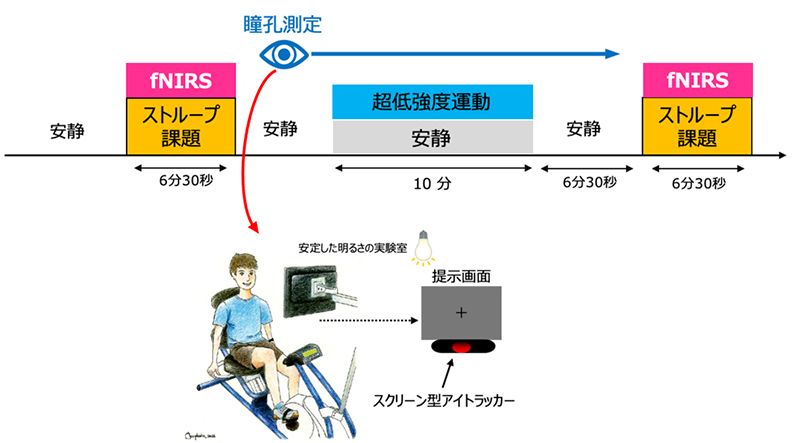2023-07-13 カロリンスカ研究所(KI)
<関連情報>
- https://news.ki.se/internet-based-therapy-effective-against-self-harm-in-adolescents
- https://jamanetwork.com/journals/jamanetworkopen/fullarticle/2807193
非自傷性自傷障害の青年に対するインターネット配信による情動調節個別療法の効果 無作為化臨床試験 Effect of Internet-Delivered Emotion Regulation Individual Therapy for Adolescents With Nonsuicidal Self-Injury Disorder A Randomized Clinical Trial
Johan Bjureberg, livia Ojala, Hugo Hesser, Henrike Häbel, Hanna Sahlin, Kim L. Gratz, Matthew T. Tull, Emma Claesdotter Knutsson, Erik Hedman-Lagerlöf, Brjánn Ljótsson, Clara Hellner
JAMA Network Open Published:July 13, 2023
DOI:10.1001/jamanetworkopen.2023.22069

Key Points
Question What are the efficacy and mechanisms of change of a therapist-guided, internet-delivered emotion regulation therapy for nonsuicidal self-injury among adolescents?
Findings In this randomized clinical trial that included 166 adolescents, internet-delivered emotion regulation individual therapy delivered adjunctive to treatment as usual resulted in an 82% reduction in masked assessor-rated nonsuicidal self-injury frequency (vs a 47% reduction in treatment as usual only), a statistically significant difference. Improvements in emotion regulation mediated improvements in nonsuicidal self-injury.
Meaning A therapist-guided emotion regulation treatment delivered online may overcome common treatment barriers and increase availability of evidence-based psychological treatments for adolescents with nonsuicidal self-injury.
Abstract
Importance Nonsuicidal self-injury is prevalent in adolescence and associated with adverse clinical outcomes. Effective interventions that are brief, transportable, and scalable are lacking.
Objective To test the hypotheses that an internet-delivered emotion regulation individual therapy for adolescents delivered adjunctive to treatment as usual is superior to treatment as usual only in reducing nonsuicidal self-injury and that improvements in emotion regulation mediate these treatment effects.
Design, Setting, and Participants This 3-site, single-masked, randomized superiority trial enrolled participants from November 20, 2017, to April 9, 2020. Eligible participants were aged between 13 and 17 years and met diagnostic criteria for nonsuicidal self-injury disorder; they were enrolled as a mixed cohort of consecutive patients and volunteers. Parents participated in parallel to their children. The primary end point was at 1 month after treatment. Participants were followed up at 3 months posttreatment. Data collection ended in January 2021.
Interventions Twelve weeks of therapist-guided, internet-delivered emotion regulation individual therapy delivered adjunctive to treatment as usual vs treatment as usual only.
Main Outcomes and Measures Primary outcome was the youth version of the Deliberate Self-harm Inventory, both self-reported by participants prior to treatment, once every week during treatment, and for 4 weeks posttreatment, and clinician-rated by masked assessors prior to treatment and at 1 and 3 months posttreatment.
Results A total of 166 adolescents (mean [SD] age, 15.0 [1.2] years; 154 [92.8%] female) were randomized to internet-delivered emotion regulation therapy plus treatment as usual (84 participants) or treatment as usual only (82 participants). The experimental intervention was superior to the control condition in reducing clinician-rated nonsuicidal self-injury (82% vs 47% reduction; incidence rate ratio, 0.34; 95% CI, 0.20-0.57) from pretreatment to 1-month posttreatment. These results were maintained at 3-month posttreatment. Improvements in emotion dysregulation mediated improvements in self-injury during treatment.
Conclusions and Relevance In this randomized clinical trial, a 12-week, therapist-guided, internet-delivered emotion regulation therapy delivered adjunctive to treatment as usual was efficacious in reducing self-injury, and mediation analysis supported the theorized role of emotion regulation as the mechanism of change in this treatment. This treatment may increase availability of evidence-based psychological treatments for adolescents with nonsuicidal self-injury.
Trial Registration ClinicalTrials.gov Identifier: NCT03353961


